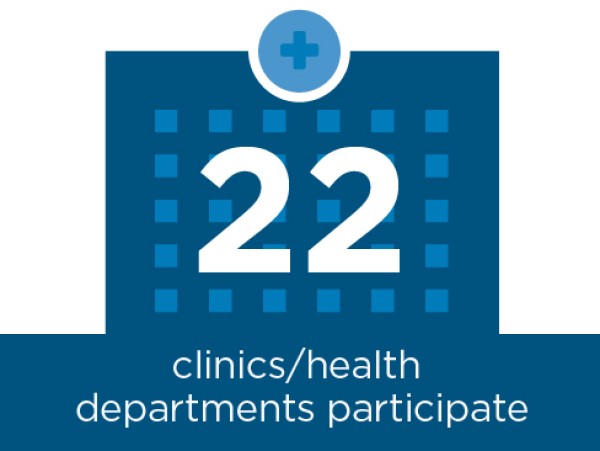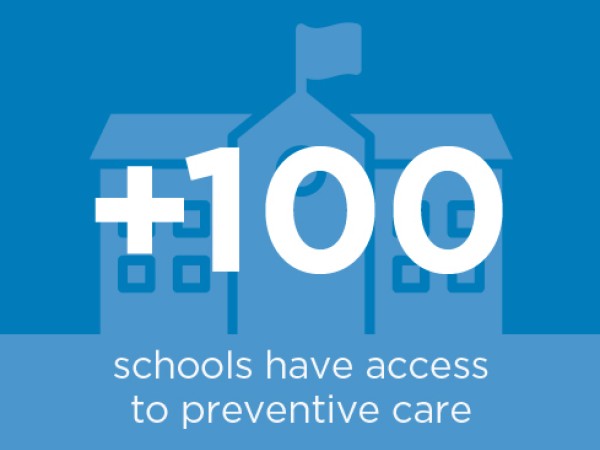On this chilly winter day at Moss Hill Elementary School, students are waiting in line — to see the dentist.
“You are doing such a great job,” Dr. Francisco Rios says, peering inside the mouth of his first patient. “Can you bite down? And open wide? Now put your tongue back in and close. Awesome! You have a perfect score. Give me five!”
After the exam, the fourth grader heads back to his class with clean teeth and a prize bag.
Dr. Rios and his team have set up shop this morning at Moss Hill in Lenoir County, N.C., thanks to a school-based oral health program funded by The Duke Endowment, Blue Cross and Blue Shield of North Carolina Foundation and BlueCross BlueShield of South Carolina Foundation. Nearly two dozen clinics and health departments, along with East Carolina University and UNC Chapel Hill, provide services. As a result, students at more than 100 schools in rural and underserved areas across the Carolinas have access to preventive care — including x‑rays, exams, cleanings, fluoride varnish and sealants.
Dr. Rios, chief dental officer at the Kinston Community Health Center, will visit 13 schools in Lenoir this year, sometimes checking as many as 25 students — and their 800 incisors, canines and molars — in one day.




